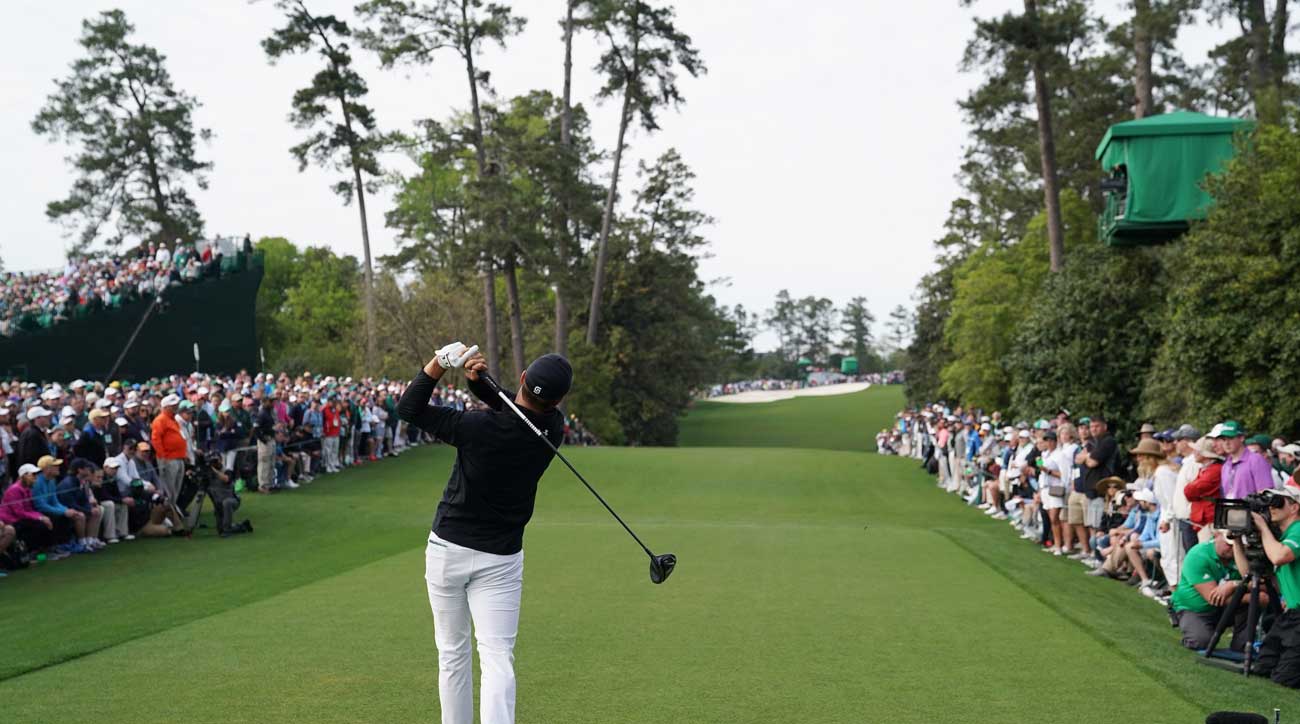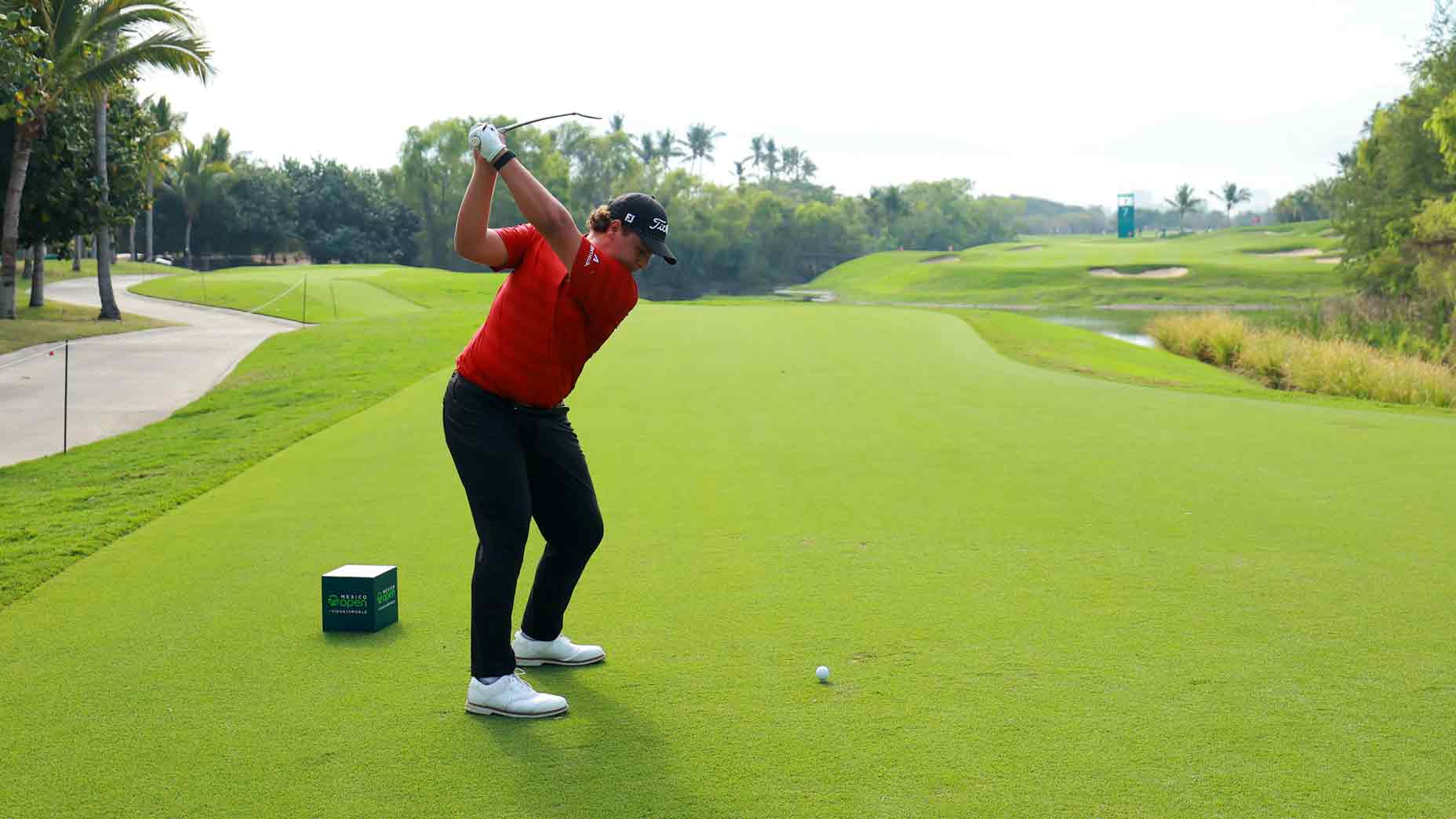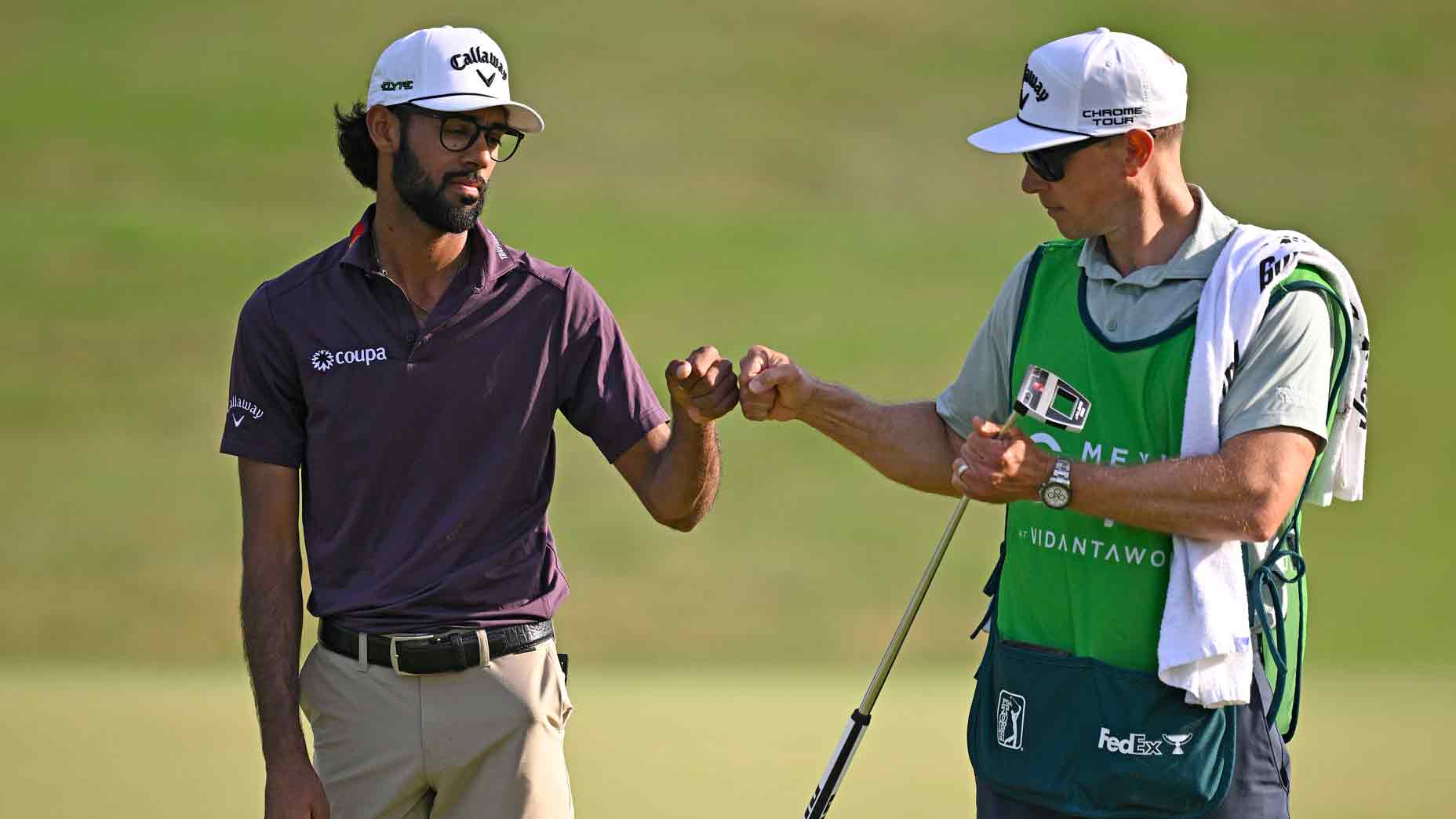AUGUSTA, Ga. — Michael Greller gritted his teeth as if he had just witnessed a car crash. Fitting, in that Jordan Spieth was racing to the clubhouse.
Greller knew Spieth’s tee shot on the 18th hole wasn’t pretty.
“Are you kidding me,” Spieth barked. “You have got to be kidding me. I just barely got past the ladies tee.”
The crash was Spieth’s ball colliding with a tree branch on the left side of the 18th hole. Pine needles popped in the air like fireworks as Spieth’s ball dropped to the ground. It was just 177 yards from the tee, in a spot no one has ever played from while contending to win and certainly not while trying to put the finishing touches on what could have been the greatest final round in Masters history.
Until that moment, Spieth had orchestrated a near-perfect round: nine birdies and no bogeys. He was 14 under for the week and, amazingly, just one shot back of the leader, Patrick Reed. All this after starting the day with a nine-shot deficit. His playing partner Justin Thomas thought they had no chance. Why sweat scores?
“The first time I saw the leaderboard was after I tapped in on 18. Honest to God,” Spieth said. “Didn’t look once today. That was my plan going in. I’m nine back. Go out and just have fun. Don’t worry about the golf tournament itself, worry about playing Augusta National.”
No one does that better. No one ever. Jack Nicklaus may own six green jackets but Spieth owns a preposterous 70.05 scoring average. No one else is close to that mark.
Three birdies in the first five holes pushed Spieth to eight under, but it wasn’t until back-to-back birdies at 8 and 9 that a Spieth victory seemed plausible. He had played the front nine in 31 strokes, a personal best. When his tee shot on 12 cleared Rae’s Creek (a Sunday feat he hadn’t accomplished since 2015), he raised his hands playfully in the air. From the back of the green he made an improbable 30-footer, but nothing was more electric than the approach into 13. From a pine-straw-shades-of-Phil-in-2010 lie with the ball above his feet, Spieth sent his ball soaring toward the green. It crashed into the front edge and rolled out to 12 feet, the kind of macho, gimme-the-Masters shot No. 13 has produced numerous times.
Masters 2018: Jordan Spieth | 13th Hole, Round 4 pic.twitter.com/QbRR2ZJdG4
— Masters Highlights (@MastersMoments) April 8, 2018
Spieth made birdie, trailed by two, and with that shot woke up the patrons on the 15th hole. Spieth could win. Adding to the excitement were the old-school metal scoreboards positioned throughout the course, which at phone-free Augusta National are the only way to track the tournament on the course. Every time they clanged, patrons knew a new score was coming. Clang…”Yes!” — bogey from Reed. Clang…”Woo!” — birdie from Fowler. Soon enough, they didn’t need a clang to track Spieth. The 2015 champ sniped the 15th green from 204 yards out and two-putted for birdie. Then, on 16, he curled in a 33-footer learning from the line from Thomas’s similar, longer putt. Fourteen under. Tied for the lead.
Masters 2018: Jordan Spieth | 16th Hole, Round 4 pic.twitter.com/t5wWKVcFJ5
— Masters Highlights (@MastersMoments) April 8, 2018
On the 18th tee, Spieth was staring down history. With a par he would shoot 63, which would tie the lowest round ever recorded at the Masters, while dropping a pressure bomb on Reed.
Off the face of his driver, Spieth’s ball began left before cutting back right. He implored it to cut even more. A few patrons did the same, but it crashed into a lobolly branch. One lonely branch.
Loblolly pines — Pinus taeda — are everywhere at Augusta National. They’re a tall southern yellow pine and they line the chute through which tee shots on the 18th hole must pass. Spieth’s Tree — do we call it that now? — flanks the left side of that chute. About 15 feet up, Spieth’s Tree begins to lean — into the chute before corkscrewing into the sky.
Augusta’s slick greens and swirling winds get all the attention but the loblollies also play a prominent role at every Masters, creating good breaks and bad. “There’s a lot of trees on that tee shot you have to think about,” said Thomas, who might have had the best view of Spieth’s shot. “If it doesn’t hit the tree, it’s in the bunker where mine was.”
Thomas knew Spieth’s shot wasn’t good, but he also knew it wasn’t his worst. On a different day, with a different wind or a different angle, a little higher, a little lower or maybe just a little more to the right, Spieth’s ball could have easily sailed by the branch. But it didn’t, and even as he walked around the green sizing up a putt for 63, he continued muttering under his breath about that one little branch.







